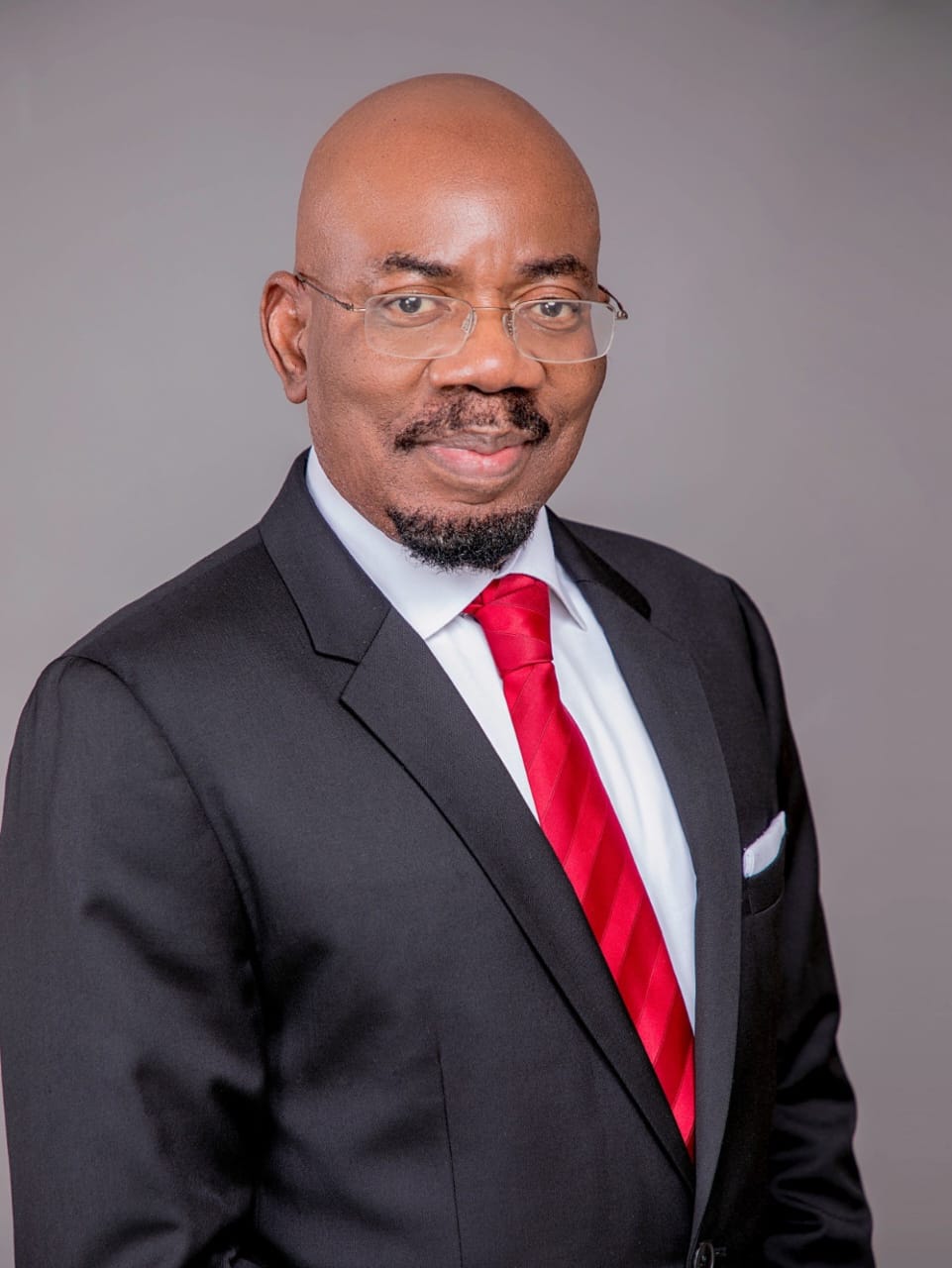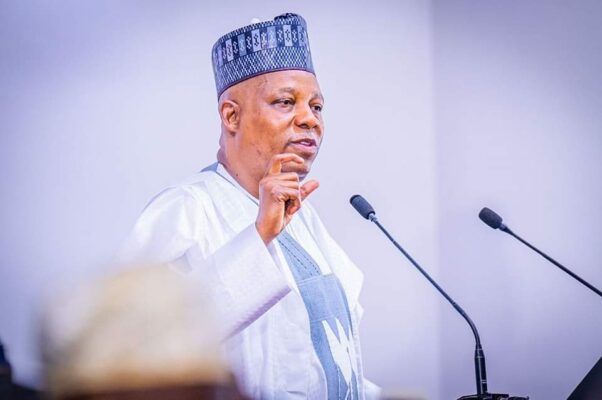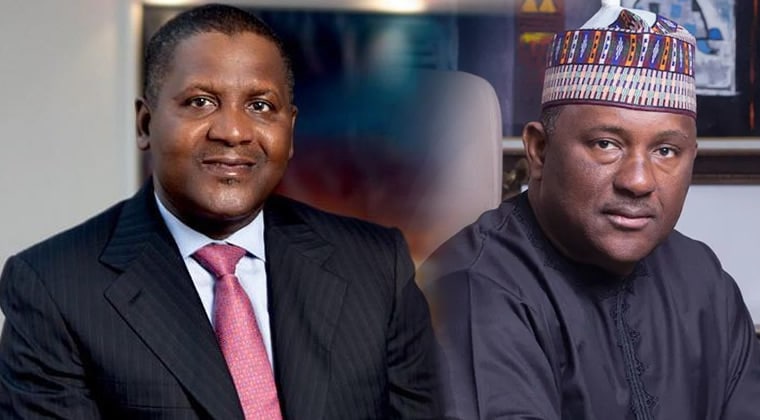News
FG appoints Jim Ovia as Chairman of Nigerian Education loan fund

President Bola Tinubu has approved the appointment of the Founder and Chairman of Zenith Bank Plc, Jim Ovia, CFR, as the Chairman of the Board of the Nigerian Education Loan Fund (NELFUND).
This was announced in a State House Press Release by the Special Adviser to the President on Media and Publicity, Chief Ajuri Ngelale on April 26, 2024.
According to the statement, ‘‘the President believes Mr. Ovia will bring his immense wealth of experience and professional stature to this role to advance the all-important vision of ensuring that no Nigerian student suffers a capricious end to their pursuit of higher education over a lack of funds and of ensuring that Nigerian youths, irrespective of who they are, have access to higher education and skills that will make them productive members of society and core contributors to the knowledge-based global economy of this century.’’
Jim Ovia, CFR, is the Founder and Chairman of Zenith Bank Plc, one of Africa’s largest banks with over $21.4 billion in assets and shareholders’ funds of over US$2.4 billion as at December 2023. Zenith Bank is a global brand listed on the London Stock Exchange and the Nigerian Stock Exchange. In addition to major operations in Nigeria and other West African countries, the Bank has sizeable operations in London and Dubai.
Jim Ovia is the Founder and Chancellor of James Hope University, Lekki, Lagos which was recently approved by the National Universities Commission (NUC) to offer postgraduate degrees in business courses. James Hope University commenced activities in September 2023.
Through his philanthropy, the Jim Ovia Foundation, he has shown the importance he accords good education. In support of the Nigerian youth, Jim Ovia Foundation offers scholarships to indigent students through the Mankind United to Support Total Education (MUSTE) initiative. Most of the beneficiaries of Jim Ovia Foundation scholarship are now accountants, business administrators, lawyers, engineers, doctors etc.
He is also the author of “Africa Rise and Shine”, published by ForbesBooks. The book which encapsulates Zenith Bank’s meteoric rise, details the secrets of success in doing business in Africa. He is an alumnus of the Harvard Business School (OPM), University of Louisiana (MBA), and Southern University, Louisiana, (B.Sc. Business Administration).
Jim Ovia is a member of the World Economic Forum (WEF) Community of Chairpersons, and a champion of the Forum’s EDISON Alliance.
In recognition of Jim Ovia’s contributions to the economic development of Nigeria, in 2022, the Federal Government of Nigeria honoured him with Commander of the Federal Republic, CFR.
Also, in May 2022, Jim Ovia was conferred with the National Productivity Order of Merit (NPOM) Award by the Federal Government of Nigeria. Earlier, he has been conferred with the national awards of Member of the Order of the Federal Republic, MFR, and Commander of the Order of the Niger, CON, in 2000 and 2011, respectively, as a testament to his visionary leadership and contributions to Nigeria’s financial services sector.
The National Student Loan Programme is a pivotal intervention that seeks to guarantee sustainable higher education and functional skill development for all Nigerian students and youths.The Nigerian Education Loan Fund, the implementing institution of this innovation, demands excellence and Nigerians of the finest professional ilk to guide and manage.
News
Tinubu to return Wednesday – presidency


The presidency has announced that President Bola Tinubu and his aides will return to Nigeria from Europe on Wednesday.
The special adviser on information and strategy to the president, Bayo Onanuga, announced in a post on his X handle on Tuesday.
“President Bola Ahmed Tinubu, along with his aides, will return to Nigeria tomorrow from Europe,” Onanuga wrote.
On April 22, Tinubu left Abuja, the country’s capital, for the Netherlands on an official visit.
The presidential spokesperson, Ajuri Ngelale, stated that the president was visiting The Netherlands at the invitation of Prime Minister Mark Rutte.
After the engagements in the country, Tinubu travelled to Riyadh, Saudi Arabia, between April 28 and 29 to attend a special World Economic Forum meeting.
Details later…
Crime
Engineering education springboard to Nigeria’s economic growth – VP Shettima


The Vice President, Kasim Shettima, says the quality of engineering education would help promote indigenous technology.
He spoke on Tuesday at a forum organised by the Nigerian Academy of Engineering in Abuja.
According to him, with the increasing urbanisation in Nigeria, 70 per cent of the Nigerian population will be in cities by 2050.
The VP, represented by his adviser on power infrastructure, Dr Sadiq Wanka, stressed that Nigeria could use its growing population to tap into the opportunities in the $360 million global outsourcing market.
“We also find ourselves facing rapid urbanization in the country, as estimates suggest that by 2050, 70 per cent of the Nigerian population will be living in cities. Given the nature and scale of the challenges ahead, the strength of our engineering capacity is inextricably linked to our economic and social progress.
“Nigeria is blessed with a young population. Our population is growing at over 3% per annum at a time when, in many developed nations, populations and workforces are ageing. Therefore, we can train our young citizens and position them to take up jobs in Nigeria and globally. And we are.
“Earlier this year, in line with Mr. President’s commitment to job creation, I launched the Outsource to Nigeria Initiative, which seeks to position Nigeria as a global outsourcing hub and tap into a $360 billion global outsourcing market,” he said.
In his speech, the President of the Nigerian Academy of Engineering, Prof Peter Onwualu, noted that if Nigeria prioritizes and uses Engineering and Technology to drive development in all sectors, the country will, in short, join the League of Developed Nations.
“With Engineering and Technology, we would our problems in food and agriculture, health care, communications, transportation, energy, power, commence, industry and indeed all sectors.
“If Nigeria can harness its technology efficiently, this will lead to a drastic drop in importation and promotion of made-in-Nigeria goods”, he told newsmen.
News
Cement price: Reps issue Dangote, BUA, others 14 days ultimatum to appear


The House of Representatives has issued a 14-day ultimatum to Dangote Cement, BUA, Lafarge Ashaka and other cement manufacturing companies in Nigeria to appear before it to make their submissions over the arbitrary increases in the price of the commodity nationwide.
The Chairman, House Committee on Solid Minerals, Mr Gaza Gbefwi, gave the directive at a public hearing to investigate the arbitrary increase in the price of cement in Nigeria by cement manufacturers, organised by House Joint Committees on Commerce, Industry, Special Duties and Solid Minerals on Tuesday in Abuja.
The PUNCH reported on March 13, 2024, that the House adopted a motion on the “Arbitrary increase in the price of cement by the cement manufacturers in Nigeria”, and constituted a joint committee to investigate and report back to it for further legislative action.
At the public hearing on Tuesday, none of the cement companies appeared or sent representatives to make submissions on their behalf.
Angered by the development, Gbefwi who represents Karu/Keffi/Kokona Federal Constituency, Nasarawa State, said the parliament was not in receipt of a court order restraining it from inviting anybody or companies for investigative purposes.
He said: “We are trying to see to the development of our country. Just as it was emphasized in the opening remarks, cement is to building what air is to every human being. In the human nature of the House, because we owe them a duty of care because they are equally Nigerians, we are giving them 14 days to make their submissions.
If not, as we have sworn to uphold the constitution, we will use everything within our powers to make sure that Nigerians are not taken for granted and are not exploited. We will not sit back while some companies declare billions in naira and dollars every day while our people can barely afford to get a decent roof over their heads.”
“We have seen in Lagos where you have Nigerians under the bridge and paying rent. Why? If this product was available, I do not believe we would go to that length. Moreover, God has given to this nation, resources in abundance. So, this joint committee resolves to give them 14 days from now, and not 14 working days but 14 days to make sure that they make their submissions and appear before this House,” he said.
Earlier in his remarks, the Speaker, Abbas Tajudeen, represented by the Deputy Speaker, Benjamin Kalu, pledged the readiness of the House to come up with appropriate legislation to encourage the industrialisation of the country.
He also assured the companies invited for deliberations not to see their invitation as a witch-hunting mission, adding that the parliament was only interested in assisting in resolving the challenges in the building sector occasioned by frequent hikes in the price of cement.
He said: “We are committed to collaborating with both cement manufacturers and end-users, believing this is the most effective way to improve the quality of life and standard of living for our citizens. We are also dedicated to enacting laws that prevent a recurrence of the factors that led to the current situation.
“Our goal is to inform Nigerians about the industry’s current state and collaboratively find solutions to navigate the challenges. The persistent rise in cement prices has had a detrimental impact not only on the building environment but also on the entire economy. Cement is a fundamental component used in construction projects like bridges, dams, houses, waterworks, and road infrastructure. This makes addressing this issue paramount.”
Quoting research by the African Development Bank, Kalu said there is a housing deficit of up to 16.9 million units, adding that Lagos, Ibadan, Kano, and Abuja, have a 20 per cent rise in housing needs yearly. The current total output in the formal housing sector is estimated at not more than 100,000 units”.
The Deputy Speaker asserted that bridging this gap requires affordable and accessible cement prices for both the government and the private sector.
“While factors like exchange rates have contributed to the price increases across various commodities, it is encouraging to see the positive results of the “Renewed Hope” administration’s policies under the leadership of Bola Tinubu. Notably, the naira has shown remarkable strength against the dollar in recent weeks, and Fitch Ratings, a global credit rating agency, recently revised Nigeria’s credit outlook to positive from stable”, he added.
Earlier in his welcome address, Gbefwi said that Nigeria has a high housing deficit of about 3 million units and a huge infrastructural deficit.
He stated: “Indeed the recent events that led to the skyrocketing of the price of cement in Nigeria has been worrisome and of great concern as it is inflicting untold hardship on Nigerians.
“To close this gap, both government and the private sector must be articulate and deliberate in putting the right policies and parameters in place that can promote, induce and or encourage development.
He added that the cost of cement is higher in Nigeria compared to other countries in Africa using the current exchange rate of the dollar to local currencies.
“Our review of cement prices in other countries like Kenya, India and Zambia for 2021 alone shows that Nigeria has the highest price of cement using the official exchange rates for each country. Nigeria’s price of cement doubles that of India at a difference of 69 per cent. Similarly, the price is 29 per cent higher than that in Kenya and 39 per cent higher in Zambia; hence the need for us to come together and find out why,” he added.
-
capital market2 years ago
Rt.briscoe, FBNH, Others halts negative performance of stock market
-
Finance3 months ago
Court orders Sen. Victor Umeh to repay N136m bank debt to AMCON
-



 Abuja Update2 months ago
Abuja Update2 months agoUNDP, FG partnership needed to achieve inclusion, equity- Minister
-
Abuja Update1 month ago
Banks drive stock market performance with N147bn gain
-



 Business2 weeks ago
Business2 weeks agoTingo Group unveils Tingo Electric, Tingo Cola drink at Lagos launch
-



 Health3 weeks ago
Health3 weeks agoCapacity training will reduce migration of health workers- NPHCDA
-
News4 months ago
Oil thieves sponsoring malicious media campaign against Navy – Spokesman
-



 Infotech1 month ago
Infotech1 month agoWorld Backup Day: NITDA urges Nigerians to ensure backup of data




